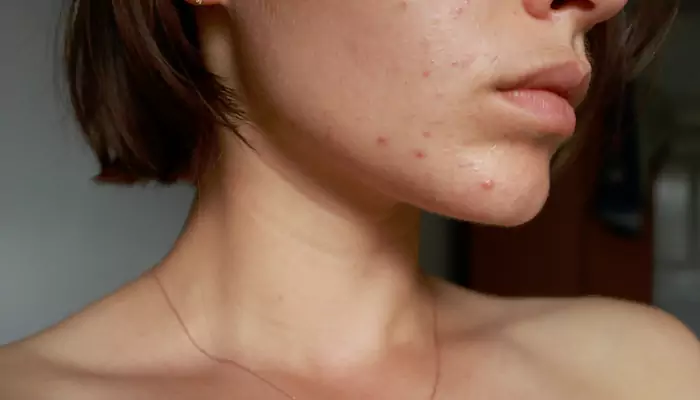You’re Never Too Old For Adult Acne - But Don’t Lose Hope!
Acne isn't just a teenage problem. Surprisingly, adult acne is a prevalent issue, affecting many in their 20s, 30s, and beyond.
- Ishani Karmakar
- 23 January, 2024
- 2 mins ago

You’re Never Too Old For Adult Acne - But Don’t Lose Hope!
Acne isn't just a teenage problem. Surprisingly, adult acne is a prevalent issue, affecting many in their 20s, 30s, and beyond.
This inflammatory skin condition, often linked to hormonal fluctuations, doesn’t necessarily end with puberty. Understanding its causes and exploring treatment options can help manage this persistent issue.
The Reality of Adult Acne
Adult acne is the most common skin condition in the U.S. and is on the rise, according to the American Academy of Dermatology. Notably, it's the eighth most prevalent skin disease worldwide. While acne peaks in the teen years (14-17 for girls and 16-19 for boys), it doesn't discriminate against adults. A 2018 study revealed a significant gender disparity in adult acne, with 85% of cases occurring in women compared to 15% in men.
Types of Adult Acne
Adult acne comes in two forms – persistent and late onset. Persistent acne is a continuation from adolescence, while late onset acne starts after age 25, often in women who didn't experience severe acne during their teenage years.
Causes of Adult Acne

Genetic and Hormonal Factors
Genetics play a substantial role; a study showed that 67% of those with adult acne had a family history of the condition. Hormones are also a critical factor, especially in women, where fluctuations due to hormones can trigger breakouts.
Hormonal Imbalances – A Key Culprit
Understanding Hormonal Acne
Hormonal imbalances are a significant cause of adult acne, especially in women. Fluctuations in hormones can lead to increased oil production in the skin, clogging pores and leading to breakouts. Conditions like polycystic ovary syndrome (PCOS) and hormonal changes can exacerbate acne.
Impact on Skin Health
These hormonal changes not only increase the likelihood of developing acne but also affect the severity and persistence of breakouts. Hormonal acne often appears as cyst-like, painful lesions, predominantly around the jawline and chin.
Stress – The Silent Aggravator
Emotional and Physical Stress
Stress, both emotional and physical, can significantly impact skin health. When stressed, the body releases cortisol, a hormone that can increase oil production in the skin, leading to acne. Physical stressors like illness, dehydration, and environmental factors can also trigger or worsen acne.
Coping Strategies
Managing stress through relaxation techniques, adequate sleep, and a balanced lifestyle can help reduce the incidence and severity of acne flare-ups.
The Role of Diet and Nutrition
Debating the Diet-Acne Connection
While the link between diet and acne is still a subject of debate, certain dietary patterns may influence skin health. High-glycemic foods, dairy, and certain fats and sugars might exacerbate acne in some individuals.
Nutritional Approaches
Adopting a balanced diet rich in antioxidants, low-glycemic-index foods, and omega-3 fatty acids can promote overall skin health. However, it's important to recognize that dietary changes alone may not be sufficient to control acne.
Advanced Dermatological Treatments
Beyond Topical Treatments
For persistent or severe adult acne, dermatologists may recommend advanced treatments. These include light and laser therapies, chemical peels, and even isotretinoin for resistant cases. These treatments target the deeper layers of the skin, addressing acne at its source.
Personalized Treatment Plans
Given the varied nature of adult acne, dermatologists often devise personalized treatment plans. These plans consider the individual's skin type, acne severity, and response to previous treatments.
Prevention and Maintenance
Daily Skincare Routine
Preventing acne starts with a consistent skincare routine. This includes gentle cleansing, avoiding harsh exfoliants, and using non-comedogenic products. Regular exfoliation can help prevent pore clogging, but it should be done cautiously to avoid skin irritation.
Regular Dermatological Check-ups
Regular check-ups with a dermatologist can help monitor the progress of acne treatments and make necessary adjustments. Early intervention can prevent acne from worsening and reduce the risk of scarring.
Adult acne is a complex condition with various contributing factors. Understanding these factors and adopting a comprehensive treatment approach can lead to successful management. It's essential to recognize that while adult acne can be challenging, it is manageable with the right combination of treatments, lifestyle changes, and support.






